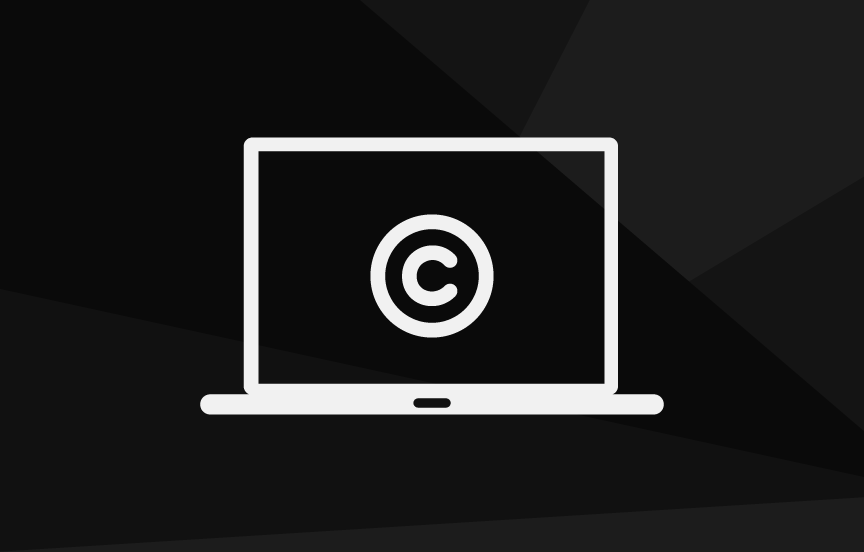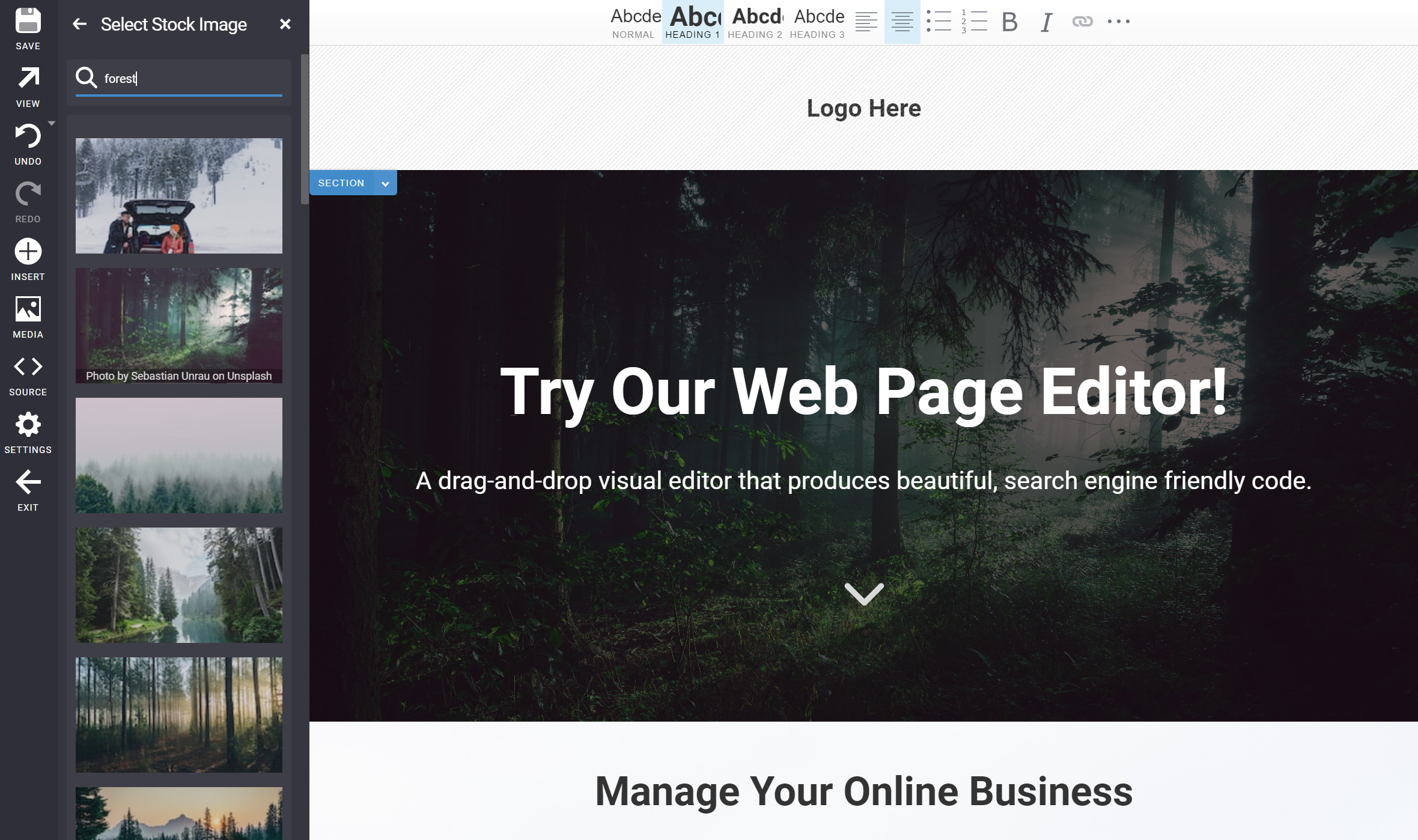Events Update
Displaying Events has never been easier. Learn about the changes we've made to Events and Dynamic Displays.
Read MoreIt's only a website - there’s not a lot that can go wrong from a legal perspective right? We spoke with intellectual property and technology law experts, Dundas Lawyers about websites, copyright, and ensuring you don’t run into trouble.

On the surface, depending on what your website actually does, there’s not a lot that can go wrong from a legal perspective – generally.
As business owners, we generally understand the importance of high quality images for our websites but can be restricted by time and budget in sourcing images. Additionally, employees can often take the lead in creating and managing content and may not understand the nuances of copyright law.
Perhaps it’s because of what Dundas Lawyers does as lawyers to intellectual property rich businesses that we see more of what can go wrong than the average lawyers.
One of the most distinctive things about a website can be its visual appeal and its use of images and photographs (Photos). In Australian copyright law Photos are referred to as artistic works. The general rule about ownership of artistic works is that the original author (Photographer) is the owner.
Provided that the Photos were not commissioned works for individual use, the Photographer will own the intellectual property (IP) in them and not the business that hired them to take the Photos. Conversely, if the Photographer is an employee, then their employer owns the Photos.
The business that engaged the Photographer has an implied right to use the Photos, but they do not own them. The same principles apply to graphic artists who are engaged by businesses to draw images and logos that are used on a website. Of course, it can get more complicated, but this is the starting point.
A common mistake made by a lot of internet users is the assumption that Photos and text taken from sites such as Google Images, eBay or Facebook are copyright-free . Despite this being commonplace, it’s simply not true. One of the earliest copyright cases involving infringement of literary and artistic works that Dundas Lawyers was involved in was the case of Motorcycle Aftermarket Spares Pty Ltd v Tamworth Cycle Tune Pty Ltd [2014] FCA 1433 (23 December 2014).
In this case, Dundas Lawyers acted for Motorcycle Aftermarket Spares Pty Ltd (Applicant) and obtained an urgent injunction to restrain the Tamworth Cycle Tune Pty Ltd (Respondent) from using over 200 artistic works (Photos) and literary works (Trade Text) that described various commonly ordered motorcycle parts.
The evidence was that the Respondent had copied the Photos and Text from the Applicants eBay Store and priced each part for sale at $1 less. This meant that when a potential buyer searched for a particular part, the Respondent’s store would appear at the top and the infringing Photos and Text would be reproduced.
The lesson from this was reflected in what Federal Court Justice Greenwood said in one of the directions hearing on this matter:
“photographs and text from the internet are not free”
Most websites use Photos from online photo libraries. This was certainly the case in the early version of the Dundas Lawyers website – however overtime these have been replaced with original Photos owned by this firm.
In a lot of cases the right to use a Photo from a photo library only extends to a single use. Yet a lot of websites use a Photo or image on many pages of their website - the result is that the second use amounts to both a breach of copyright and a breach of contract. That said this is not always the case. You really need to read the terms of the licence.
Each year some of the more aggressive owners of photo libraries send bots out looking for the multiple use of images (Unlicensed Use). Once the bots identify Unlicensed Use send letters of demand from lawyers who are engaged to protect their rights. Fair enough! However, the issue is that most photo library users don’t know they’ve done anything wrong, and they simply pay the amount demanded.
From time to time, we've seen cases where businesses receive e-mails from fraudsters claiming copyright infringement. They may falsely state they are the original photographer and that you've infringed their copyright and demand payment. It is important that you keep track of where you've sourced your images and do not reply to scams.
At this point some Oncord customers might read this article and be a little concerned how they've used the Unsplash photo library. While building or editing website pages, Oncord allows users to drag-and-drop an image from the integrated Unsplash library. They need not be concerned because the licence provided to users of Unsplash is an example of a website allowing multiple uses of downloaded photos:
“Unsplash grants you an irrevocable, nonexclusive, worldwide copyright license to download, copy, modify, distribute, perform, and use photos from Unsplash for free, including for commercial purposes, without permission from or attributing the photographer or Unsplash.”
According to this license, users are only prohibited from selling downloaded photos without significant modification and complaining them to
replicate a similar or competing service. In other words you can’t download multiple images and create a competing photo
library. It’s common sense really.

Oncord also integrates with various icon libraries, such as Font Awesome. The version of Font Awesome integrated into Oncord is "Font Awesome Free", which is free, open source, and GPL friendly.
According to the license, you can use it for commercial projects, open source projects, almost whatever you want.
However, Font Awesome does require attribution. With Oncord this attribution is preserved in the form of a code comment, within the
source code of each icon used.

ChatGPT is all the rage at present with claims that it can do almost anything. That said when you ask ChatGPT to write content for your website, you need to be careful that a ‘substantial’ part of someone else’s work has not been reproduced. To attempt to find where ChatGPT has taken material from, simply cut and paste a couple of sentences into Google and see if you can find an exact, or substantially identical match. If you find something that is substantially identical then beware. Just because it comes from Chat GPT doesn’t mean that you can’t infringe a third party’s copyright.
Read the terms and conditions – taking 10 minutes to do so could save you thousands.

Contributed by Malcolm Burrows
B.Bus.,MBA.,LL.B.,LL.M.,MQLS.
Legal Practice Director. dundaslawyers.com.au
Disclaimer
This article contains general commentary only. You should not rely on the commentary as legal advice. Specific legal advice should be obtained to ascertain how the law applies to your particular circumstances.
Subscribe to stay up-to-date with new features and announcements.
Displaying Events has never been easier. Learn about the changes we've made to Events and Dynamic Displays.
Read MoreA new Oncord Lite plan will be made available from March 1st 2024, alongside changes to Oncord pricing. We're increasing plan limits, eliminating overage fees, and making it easier to manage costs hosting e-mail with Oncord.
Read MoreWe recently celebrated the launch of a new UK hosting cluster, improving performance for Oncord clients based around the United Kingdom. It's now easier than ever to filter Contacts and other data throughout Oncord thanks to an overhaul of the "Filter by Conditions" system. We've introduced a new Status Page to monitor service status, and deployed plenty of improvements to help Oncord Commerce clients improve how they sell online.
Read More
Try a Demo, or Speak With a Consultant
Leave a Comment